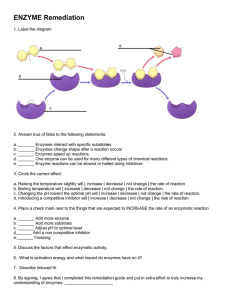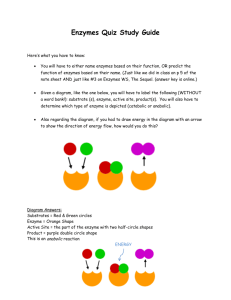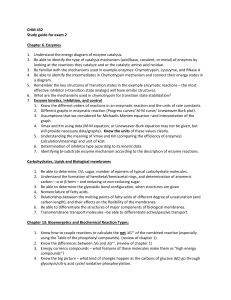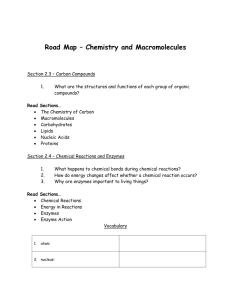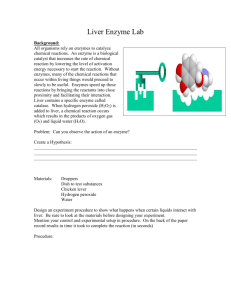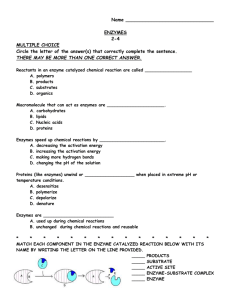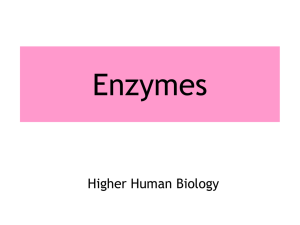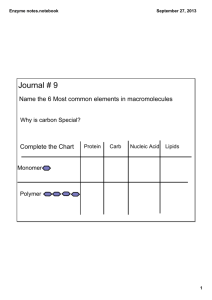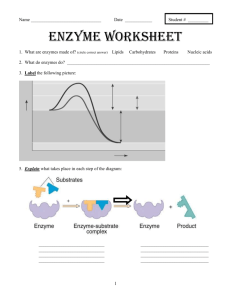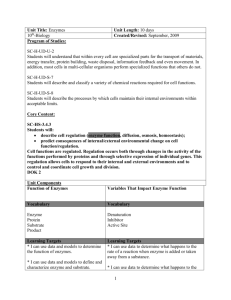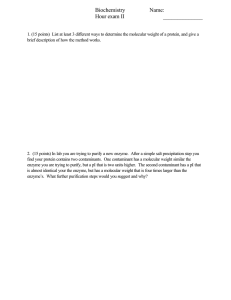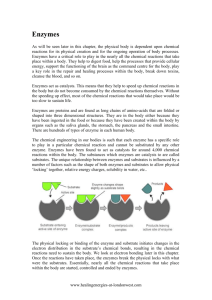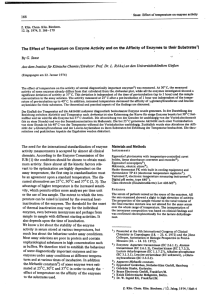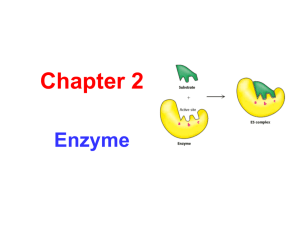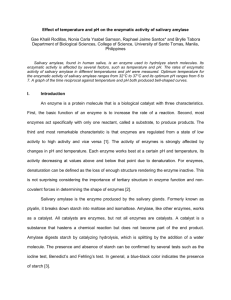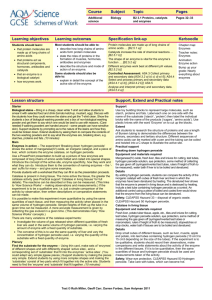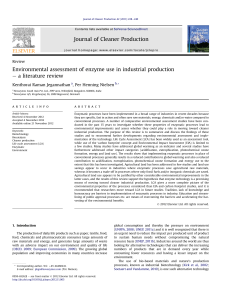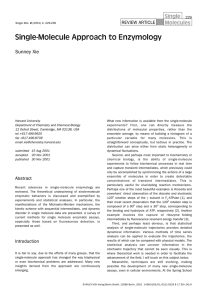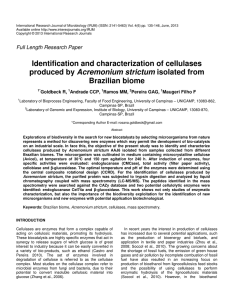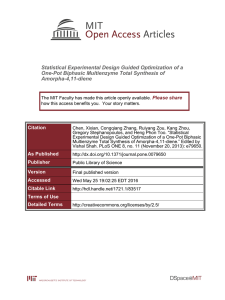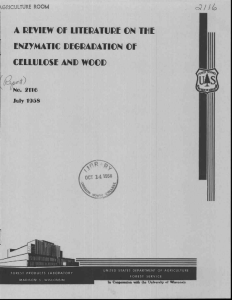Analysis of factors influencing enzyme activity and stability in the gas
advertisement
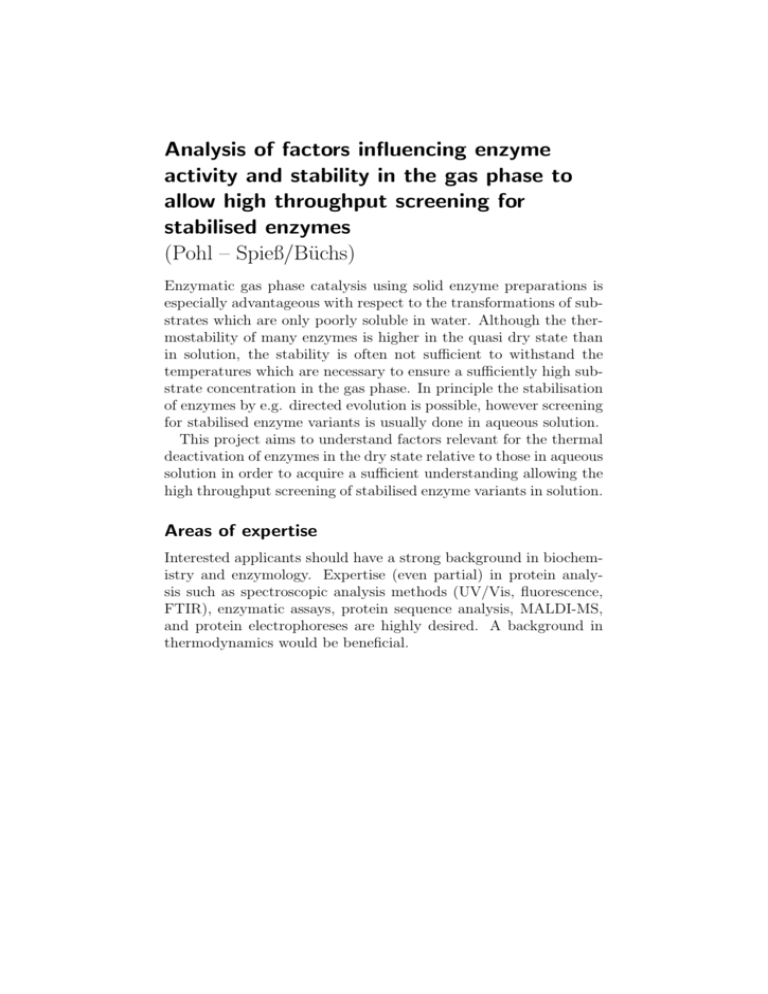
Analysis of factors influencing enzyme activity and stability in the gas phase to allow high throughput screening for stabilised enzymes (Pohl – Spieß/Büchs) Enzymatic gas phase catalysis using solid enzyme preparations is especially advantageous with respect to the transformations of substrates which are only poorly soluble in water. Although the thermostability of many enzymes is higher in the quasi dry state than in solution, the stability is often not sufficient to withstand the temperatures which are necessary to ensure a sufficiently high substrate concentration in the gas phase. In principle the stabilisation of enzymes by e.g. directed evolution is possible, however screening for stabilised enzyme variants is usually done in aqueous solution. This project aims to understand factors relevant for the thermal deactivation of enzymes in the dry state relative to those in aqueous solution in order to acquire a sufficient understanding allowing the high throughput screening of stabilised enzyme variants in solution. Areas of expertise Interested applicants should have a strong background in biochemistry and enzymology. Expertise (even partial) in protein analysis such as spectroscopic analysis methods (UV/Vis, fluorescence, FTIR), enzymatic assays, protein sequence analysis, MALDI-MS, and protein electrophoreses are highly desired. A background in thermodynamics would be beneficial.
